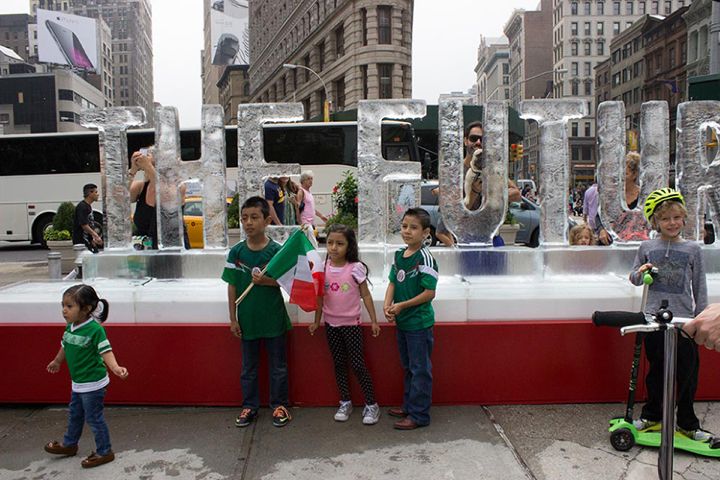Joshua Furst

We knew it was coming—everyone knew it was coming—but we hadn’t been ready to admit that it was already here until Long Beach and the Florida Keys and various other barrier reefs along the coast were gone. Well, almost gone: They were gone at high tide but they miraculously reappeared twice a day. We watched this on TV.
We’d been through this before. With Katrina (almost). With Sandy. The difference this time was that we never got to the recovery portion of the news cycle. This time, like those, our lives weren’t affected—or I should say, our lives weren’t negatively affected. We lived up the hill, in the Heights, far away from the evacuation zones and the flooded houses, what we glibly called “the action.”
We could almost forget how, except for the jarring sense of unease that came over us when we thought about Cora’s second cousin and the timeshare in the Outer Banks she’d refused to abandon until its stilts had been swept up from under it and it had collapsed, the question we asked ourselves when we thought of her: when would we be affected? And would we be as bullheaded as she was about refusing to accept our new reality? Would we know enough to mourn and then adapt?
These were questions we could put off for now. That’s what we told ourselves. And in those early weeks, we almost convinced ourselves that a new and beautiful collective society might sweep in with all that water. No one was going to work—they couldn’t get there. The bridges were closed. The tunnels were flooded. We lived in one of those rifts that sometimes open up in history, the surreal goodwill that cracks over the city in the aftermath of crisis. Everyone, and their houseguests, refugees from Red Hook and the Battery, spent their days hanging out on the boulevards, in the park.
Cora and I kept bumping into people we’d made and broken so many dates with that we’d long ago given up on seeing them. Now, with nothing to do but wait for the new normal, we rekindled these friendships with drinks in the afternoon and dinners out at any of the numerous artisanal restaurants that were all still open at that time. We joked about what a boon this would be for the rooftop gardens and backyard chicken coops in Brooklyn, all that urban farmland that we rhetorically supported without ever having actually experienced. We speculated about how our real estate would appreciate now that our hood was the only one left standing. We worried about all the people who’d been displaced. We turned serious sometimes, when we ran out of jokes, and wondered how many of the dead still hadn’t been found and speculated about cholera and mass burial graves, because, really, what else were they going to do with all those people? We shook our heads in disgust, thinking about all ways the government had cynically allowed this to happen, encouraged it to happen, made money off of and picked up votes because of their willingness to allow it to happen. And we tried to assuage our guilt at having survived by reminding ourselves that we’d been on the side that tried to prevent it.
That was all before. We know better now, not that knowing better does us any good.